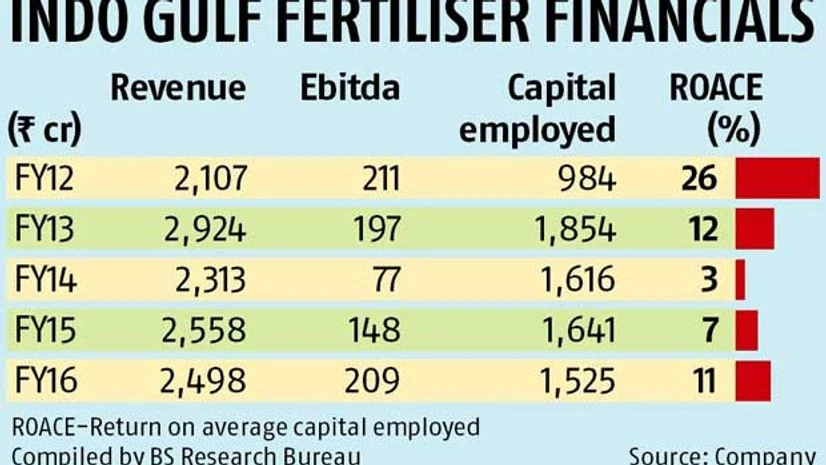The Aditya Birla Group is planning to exit low margins business in India and abroad, as part of its plan to reorganise its activities, post-merger of its two holding companies - Grasim and Aditya Birla Nuvo. As part of its strategem, the group has identified the sale of its fertiliser business that had earned it ~2,498-crore of revenue in FY16. The business is currently operated by Indo Gulf Fertilisers, a subsidiary of Aditya Birla Nuvo.
According to a banking source, the process to sell the fertiliser business has been initiated; the sale would be complete by the next financial year, once the merger between Nuvo and Grasim goes through. The sale will help the merged entity - New Grasim - to unlock value in its subsidiaries and generate cash to fund its new-age businesses. The enterprise valuation of the business will be up to Rs 5,000 crore.
When contacted, a Birla Group spokesperson denied the fertiliser business is up for sale.
Indo Gulf Fertilisers is India’s eighth largest manufacturer of urea and had reported earnings before interest, tax, depreciation and amortisation (Ebitda) of Rs 209 crore in FY16, on revenues of Rs 2,498 crore, compared to Ebitda of Rs 148 crore in FY15. Its returns on average capital employed were 11 per cent in FY16 and seven per cent in FY15.
In August this year, Tata Chemicals had sold its fertiliser business to Norway’s Yara Chemicals for Rs 2,670 crore, in its bid to focus on new businesses. A Birla Group source said the merged entity would sell other businesses, too, where the margins are low; the business is unable to grow and is operating in non-core business.
Earlier in April this year, group company Hindalco announced it had sold its Australian mining unit to local firm, Metal X. Recently, the media also reported that More, the loss-making chain of retail grocery stores owned by the Birlas, will be sold to Kishore Biyani of the Future Group.
More From This Section

Besides, in the past few years, the fertiliser sector itself has slowed down. In FY15, the industry witnessed slower recovery of fertiliser subsidy from the government due to inadequate budgetary provision. This affected the profitability of the industry due to a steep rise in working capital.
To make matters worse, due to government policy for urea production beyond 100 per cent quantity as permissible under pricing mechanism, few urea manufacturers had to take plant shutdowns during the last quarter of 2014-15. For example, in FY15, Indo Gulf had to take the urea plant shutdown for 35 days, starting February 27, 2015, thereby pulling down earnings from a normal level. The plant resumed operations on April 2, 2015. In the previous year as well, the urea plant had shut down for 41 days.
WHY THE FERTILISER BIZ IS NOT FERTILE GROUND
- Industry analysts say large corporates are exiting fertiliser business in India, as sale price of urea is controlled by the government, thus, impeding growth
- Any shortfall between cost of production and sale price of a fertiliser company is compensated by the government as subsidy
- But Indian companies have complained in the past that the subsidy released to them is after a lag of several months, thus, blocking their cash flow

)
